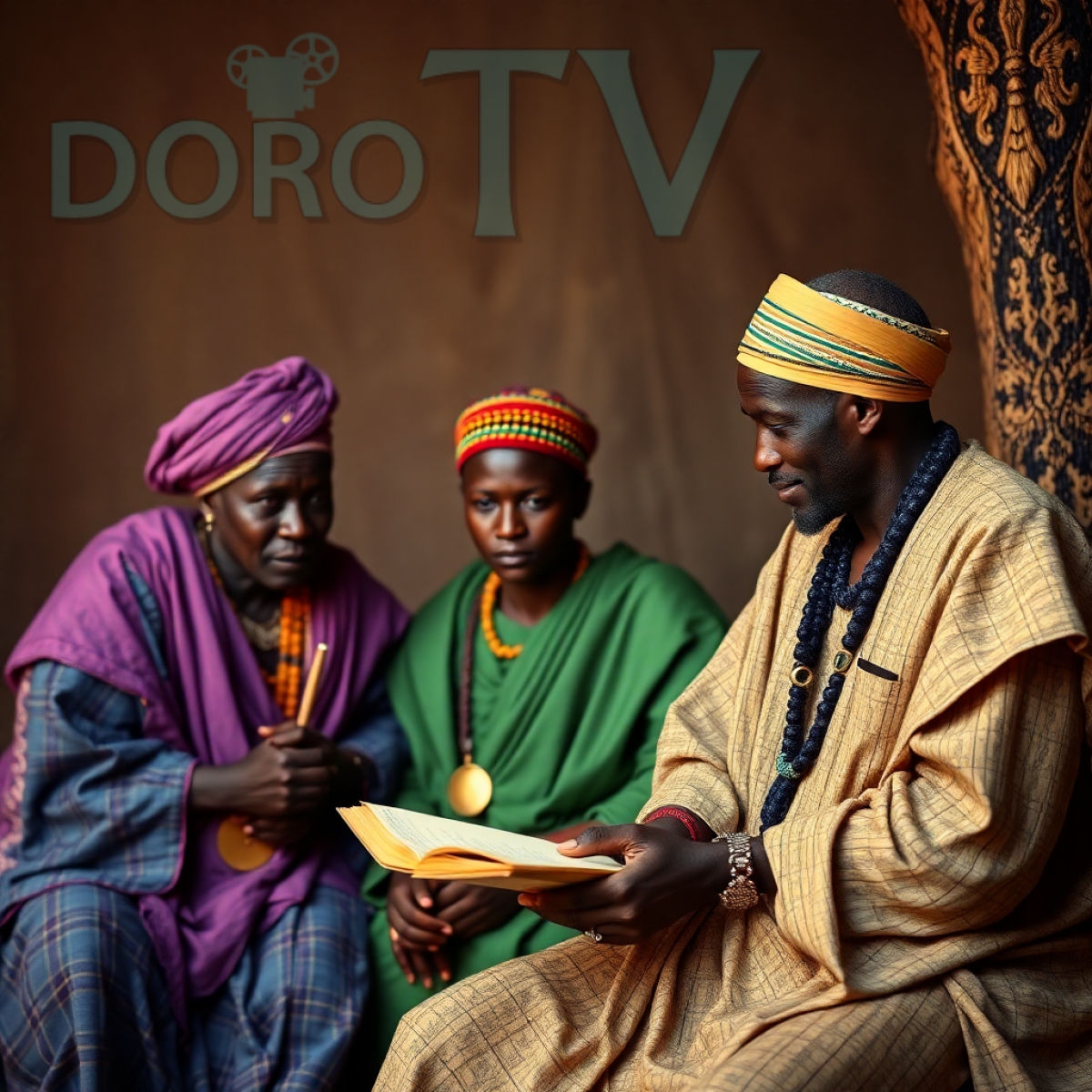Discover the Hidden Inventions of the Yoruba Tribe

The Yoruba Tribe: A Legacy of Innovation
Did you know? You can comment on this post! Just scroll down
The Yoruba people, an ethnolinguistic group residing primarily in southwestern Nigeria, have a rich history of innovation and ingenuity. Their contributions to various fields, from art and culture to science and technology, have left an indelible mark on African history. This article explores some of the remarkable inventions and discoveries attributed to the Yoruba tribe.
Adire: The Art of Indigo-Dyed Textiles
One of the most iconic and enduring contributions of the Yoruba people is the art of Adire, a traditional cloth-resist dyeing technique. The word "Adire" is derived from the Yoruba word "Tí a diré," meaning "that which has been tied." This technique involves tying, stitching, or folding fabric to create patterns before dyeing it with indigo. The resulting designs are often bold, geometric, and imbued with cultural symbolism. Adire textiles have not only served as clothing and decorative items but have also played a significant role in social and religious ceremonies.
The Nok Terracotta Sculptures
The Nok civilization, which flourished in present-day central Nigeria between 1500 BCE and 200 CE, is believed to have been predominantly inhabited by the Yoruba people. This ancient civilization is renowned for its remarkable terracotta sculptures, some of which are considered the earliest life-size sculptures in sub-Saharan Africa. The Nok sculptures depict humans, animals, and mythical creatures, showcasing a high level of artistic skill and understanding of human anatomy. These sculptures provide valuable insights into the social, cultural, and religious practices of the Nok people.
The Yoruba Counting System
The Yoruba counting system, known as "Isopo," is a unique and complex system that has been passed down through generations. It is based on a combination of base-20 and base-10, making it more efficient than the traditional decimal system for certain calculations. The Isopo system has been used for centuries in various aspects of Yoruba life, including trade, agriculture, and astronomy. Its intricate structure and mathematical logic have fascinated scholars and mathematicians for decades.
The Yoruba Calendar
The Yoruba people have a rich tradition of timekeeping, using a complex calendar system that combines lunar and solar cycles. The Yoruba calendar, known as "Odun," is divided into 16 months, each with its own unique characteristics and cultural significance. The calendar is used to determine auspicious dates for festivals, ceremonies, and agricultural activities. The Yoruba calendar is a testament to the people's deep understanding of astronomy and their ability to create a system that reflects their cultural values and beliefs.
Conclusion
The Yoruba tribe's legacy of innovation is a testament to their creativity, ingenuity, and deep understanding of the world around them. From the intricate patterns of Adire textiles to the complex mathematical logic of the Isopo counting system, the Yoruba people have made significant contributions to various fields. Their inventions and discoveries continue to inspire and amaze, reminding us of the rich cultural heritage of Africa.
Article Posted 4 Months ago. You can post your own articles and it will be published for free.
No Registration is required! But we review before publishing! Click here to get started
One Favour Please! Subscribe To Our YouTube Channel!
468k
Cook Amazing Nigerian Dishes, Follow Adorable Kitchen YouTube Channel!
1.1m
Like us on Facebook, Follow on Twitter
React and Comment
Click Here To Hide More Posts Like This
Watch and Download Free Mobile Movies, Read entertainment news and reports, Download music and Upload your own For FREE.
Submit Your Content to be published for you FREE! We thrive on user-submitted content!
But we moderate!

















